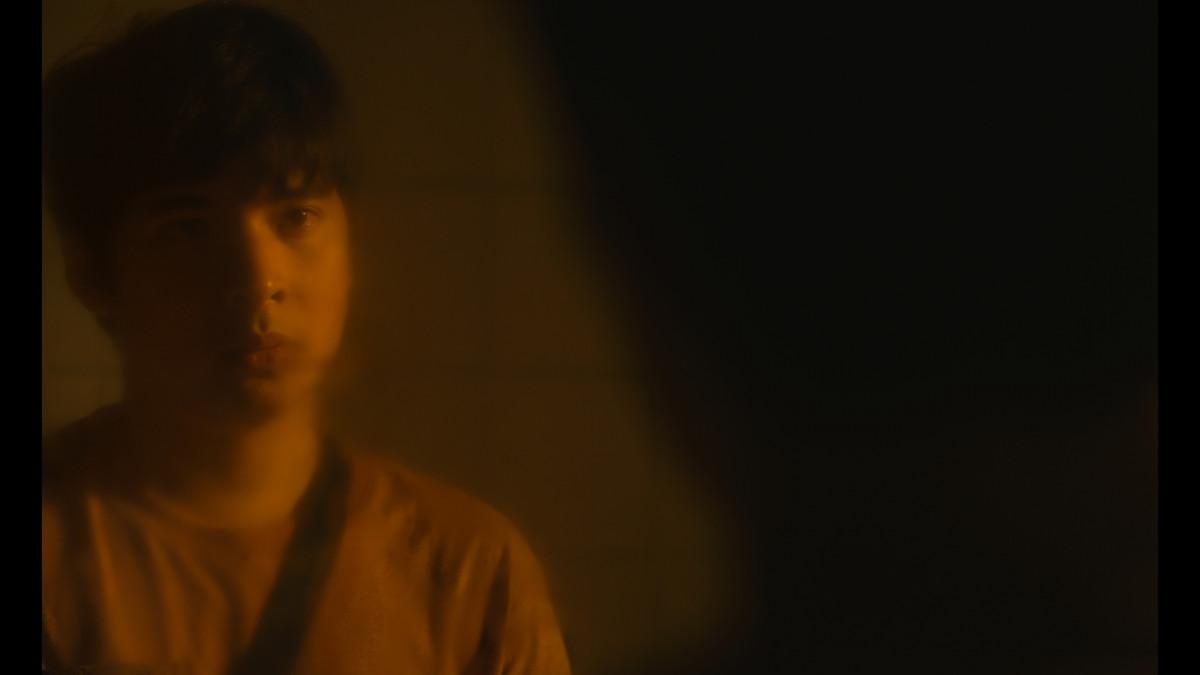
If there was ever a point of inspiration in world history for Filipino cinema, it’s definitely the era of former President Rodrigo Duterte whose tenure saw one of the most controversial and deadly anti-drug policies take effect. Such is the setting we are immersed in with award-winning filmmaker Jun Robles Lana’s newest release out of last year, Big Night, with a story that’s as equally delightful as it is terrifying given the backdrop.
Our story is set in the district of Barangay where a new anti-drug campaign is in effect using a “watch list” program targeting suspected junkies. We meet Dharna (Christian Bables), a barber and stylist whose common everyday life sits as far away from illegal drugs in any context as other people just living day-to-day and struggling to get by. It also happens to be All Souls’ Day, which is a day of memberance for the dead – death being a concept as inescapable as air the second Dharna suddenly learns that his government name has been included on an early “watch list” draft of suspected junkies and dealers. The story continues as Dharna, with only 24 hours to spare, is forced to multi-task between his boyfriend ahead of a major drag competition, and the fluctuating bureaucracy of incorrigible local politicians and area presidents to get his name removed from the list before it becomes officiated.
I was instantly reminded of classic crime dramas of the 90s that I grew up watching. The one that sticks out the most is Vondie Curtis-Hall’s 1997 film, Gridlock’d, about two junkies thrown into a crisis when a friend suffers an overdose, and are forced into a daylong escapade of citywide bureaucracy in an effort to get off the streets and get clean, all while dodging police, armed gangsters. Lana’s Big Night runs with a similar pace and energy on a much more satirical note for its runtime, using key sociopolitical and introspective topics relevant to matters of faith, womens’ health and economic inequity to highlight what invariably comes across as a system failing its constituents.
At one point, Dharna’s boyfriend Zeus suggests relocating, which Dharna insists comes with the risk of losing his customers. One scene also finds Dharna conversing with the spirit of his late mother whose depiction and demeanor gets a total one-eighty when she emerges. All of these things and more take center stage in highlighting Dharna’s turmoil, whereas any brouhaha pertaining to his sexuality takes a backseat. It’s less so an issue with his father as he also has two other children – one of whom is also gay – whereas any cause for concern about his childrens’ public image as “junkies” is pretty much a dealbreaker. The biggest gutpunch in the film takes place well into the second half when Dharna, joined by Zeus (Nico Antonio) out of concern for his safety, gets a chance meeting with an area president who also happens to be a famous movie star who, for all intents and purposes with a film like Big Night, is way more than meets the eye.
The more epochal message with Big Night does seem a lot more foreboding upon greater thought. Given all of the elements used in the film, indeed there are some highs and a few truly laugh-out-loud moments, including one where Dharna has to help the district’s midwife birth the children of two pregnant women, that is if he can bring himself to stop swooning over one woman’s husband. Such imagery is pit together with scenes involving one moment in the first few minutes where a brutal crime occurs. Later on, Dharna is in a morgue trying to talk to a local politician and businesswoman named Cynthia only to get assigned to make-up the corpses for appearances for more donations. Another scene takes us into a hospital hallway where Dharna, passing by a woman fraught with trauma, holding a bloody pair of slippers, takes the slippers to a bathroom to clean them. And this all happens long after the film starts when a man dies and Dharna witnesses it just moments before gossping with his friends about a trist he had with him.
To Lana’s credit, it’s the conscious choice to exhibit two major extremes in Big Night that brilliantly coaleses it as a film that is neither one thing or another. It’s a chilling crime tale told through a modestly jocund rom-com filter that compels you to confront a very real version of a society puts public image and theocracy first before quality of life for common individuals, an inherently relatable issue that overrules any absolutes that dares question why it is anyone seems unable to improve their station in life no matter how much they play by the rules.
“Crime doesn’t pay” and “Elections have consequences” are all fitting taglines to bear in mind for a movie like Big Night. If there are any other lessons to draw from this film however, I take it they can only come from deep introspection and general hope, regardless of where anyone’s faiths stands.
Big Night is screening as part of the 2022 edition of the New York Asian Film Festival.
